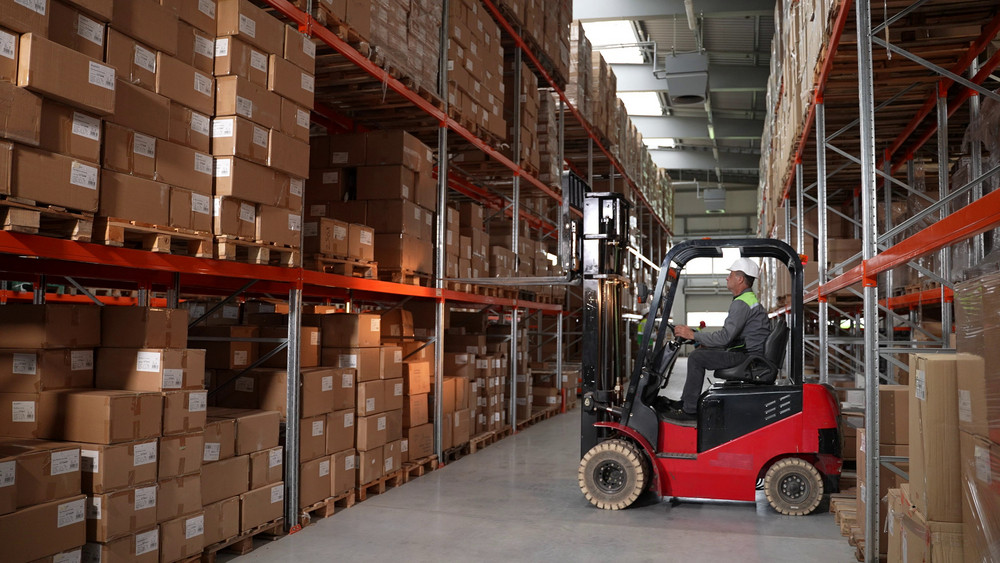Why Industrial Scales Are Paramount to Ensuring Product Quality


Using a set of scales in a domestic setting, a small margin of error when calculating your ingredients is unlikely to be too critical or damaging to what you are trying to create and the end product you enjoy. It would be foolish to apply the same standards of accuracy and guesswork in a commercial situation. It could even be dangerous. That’s why industrial scales, and the standards they deliver, are often crucial to ensuring product quality.
A company such as Microtess, for instance, creates high-precision weighing sensors for use in a commercial environment. These are a critical component that helps companies achieve high weighing and measurement standards. Achieving these standards is not just a desirable target for quality assurance purposes, it is also often necessary for ensuring and maintaining a business’s reputation for reliability and excellence.
Why are industrial scales so important when it comes to achieving and maintaining the required levels of product quality and consistency? Let’s look at what industrial scales offer and the key role they play in ensuring product quality.
Regulatory compliance is a critical factor
Virtually any type of manufacturing business or producer must adhere to a certain set of stringent regulatory rules and guidelines. These change depending on the industry they are in.
When you consider certain industries such as pharmaceuticals, for instance, you begin to appreciate just how important it is to stick to strict regulatory compliance requirements. The food industry is another prime example. Both of these sectors rely heavily on accurate measurements to ensure the safety and consistency of their products.
With the help of industrial weighing scales, companies operating within these and other relevant sectors can easily meet these regulations. It is all about achieving accurate measurement and traceability throughout the production process.
Industrial scales typically have advanced weighing technology. This not only helps produce the accuracy required on a consistent basis, but it also helps with traceability and documentation. All of this helps with achieving regulatory compliance. It also makes it easier to carry out audits and investigations when you have the technology to help the process.
Properly validated and calibrated scales allow a business to be confident of meeting all the compliance and production demands for their daily workflow.
The importance of precision and consistency
There are numerous industries where manufacturers create products using a very precise formula and mix of raw ingredients. Every single one of these ingredients has to be accurately weighed in order to achieve the desired level of consistency.
This is where industrial scales become so highly prized. It is their ability to maintain a high level of precision and consistency each and every day.
Every batch of a product has to be the same as the last one, in every detail. The technical ability and superiority of industrial scales mean that a manufacturer can be confident with the level of consistency they demand.
Minimizing waste
Keeping a tight handle on manufacturing costs by minimizing overfills and underfills is something that can have a positive impact on the bottom line.
Profit margins can be notoriously tight in certain industries. Any level of wastage can have a profound impact on profitability. Using industrial scales helps manage that particular risk and minimizes the prospect of any financial or reputational damage.
Industrial scales are specifically equipped with the required check weighing capabilities that allow a manufacturer to verify that each package has been created with exactly the right amount of product.
If any product does not meet weight specifications, there is a risk of the product being rejected. There is also a heightened risk of legal action as a result of underfilled products.
Industrial scales help manage this risk by minimizing the prospect of overfilling and underfilling.
Help with identifying contamination
Another area where industrial scales come into their own is when it comes to detecting and preventing the prospect of contamination.
Certain industry sectors, such as the food and beverage industry, tend to rely heavily on industrial scales. This is because they help to identify and prevent contamination. The reason they work so well in this setting is due to the use of hygienic designs and materials. These help reduce the prospect of cross-contamination when the scales are in use.
Another key point to note is that industrial scales are extremely robust. This means they are more capable of withstanding a thorough cleaning and sterilization process. Cleanliness and extremely high hygiene standards are a key part of many manufacturing processes. Hence, why industrial scales are considered indispensable in this sphere, as they help manage the risk of contamination.
Industrial scales help with quality control and real-time monitoring
Quality control is always at the forefront of the minds of any business that is manufacturing products. Industrial scales prove to be a useful ally in this respect.
It is straightforward to create an integrated system that combines the capabilities of industrial scales with data collection and analytical systems. Having access to this wealth of data allows manufacturers to accurately track many parameters and factors throughout the manufacturing process.
Manufacturers can monitor and manage potential risk factors such as changes in viscosity, temperature variations, or even chemical reactions. Being able to maintain such a level of consistency and quality control through real-time monitoring is often invaluable.
As you can see, industrial scales offer far more than just a reliable and accurate weighing solution. You only have to think how critical it would be to accurately weigh pharmaceutical ingredients, for instance, to appreciate how important it is to have something that enables you to achieve the high standards of accuracy and consistency.
Industrial scales are rarely seen as cutting-edge manufacturing technology, but when you see what they have to offer, they deserve more attention and appreciation for the solutions they deliver.









